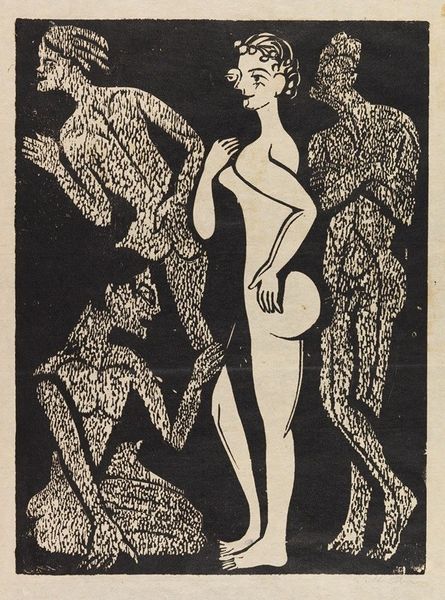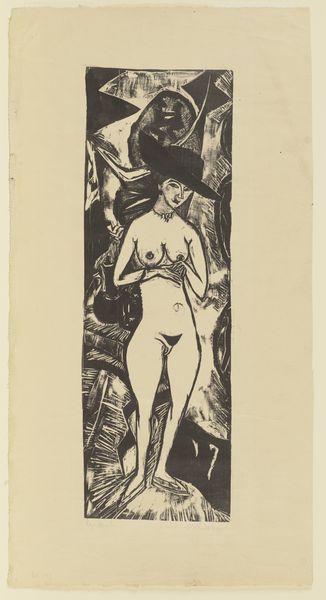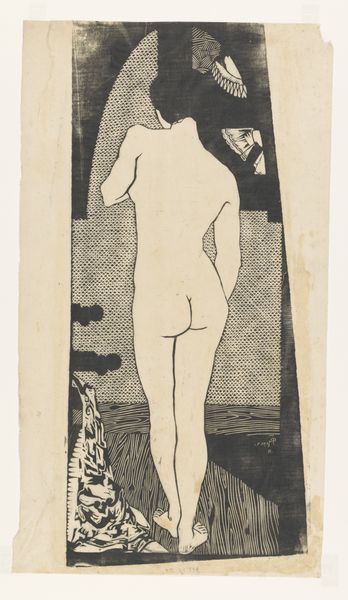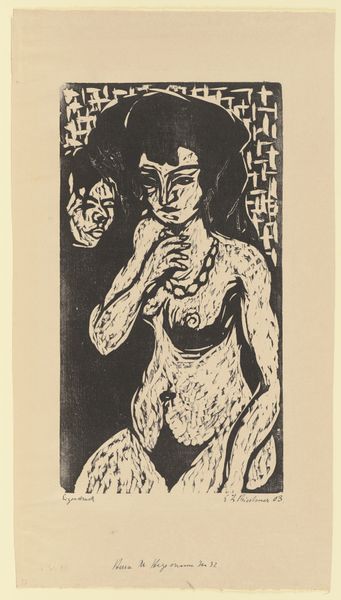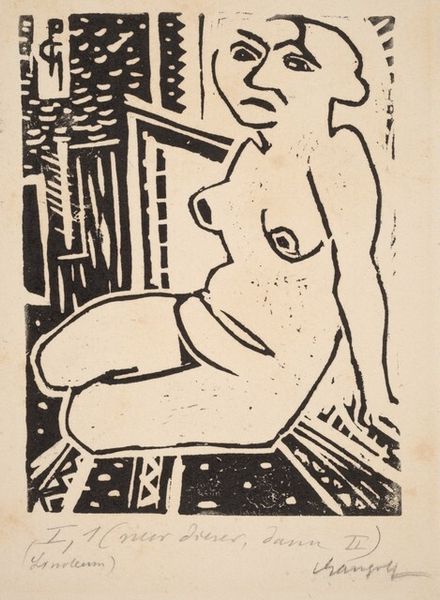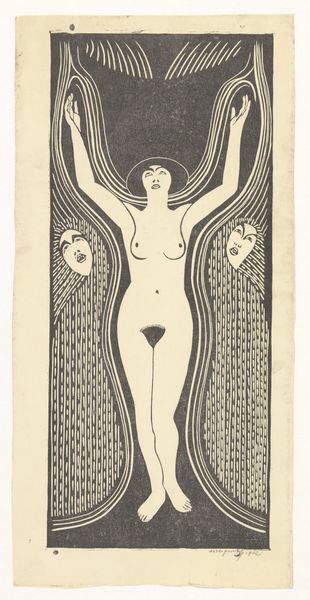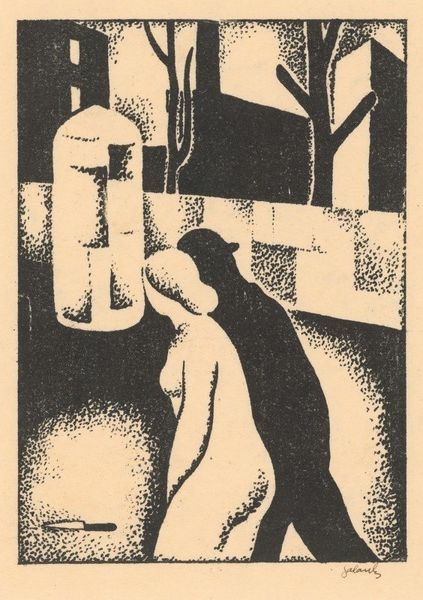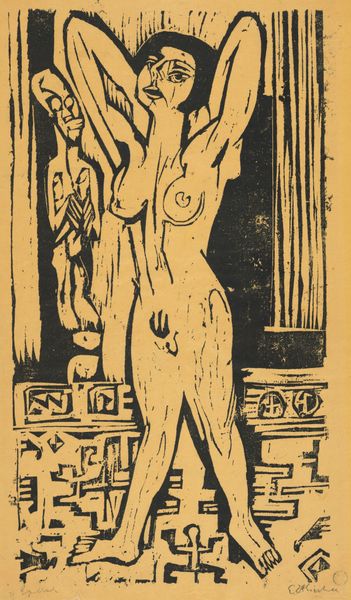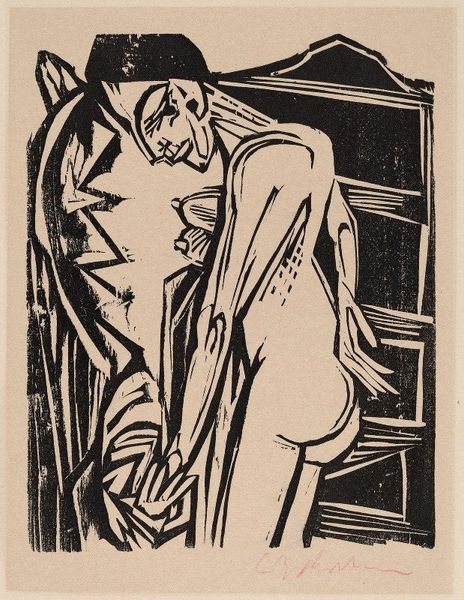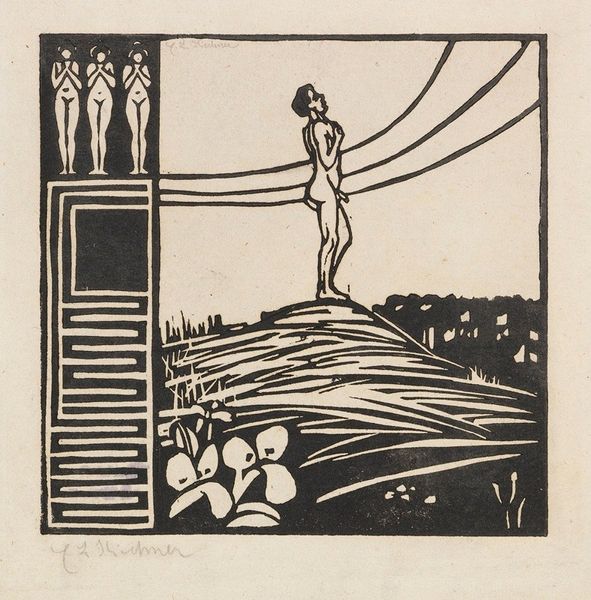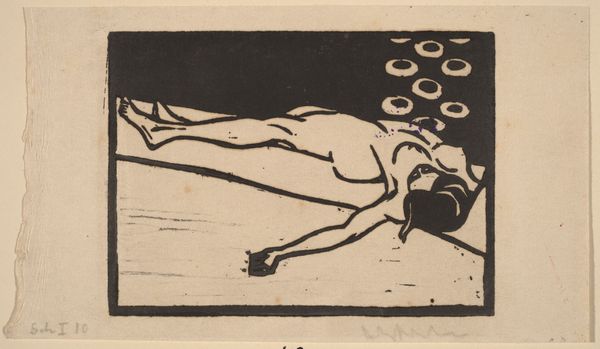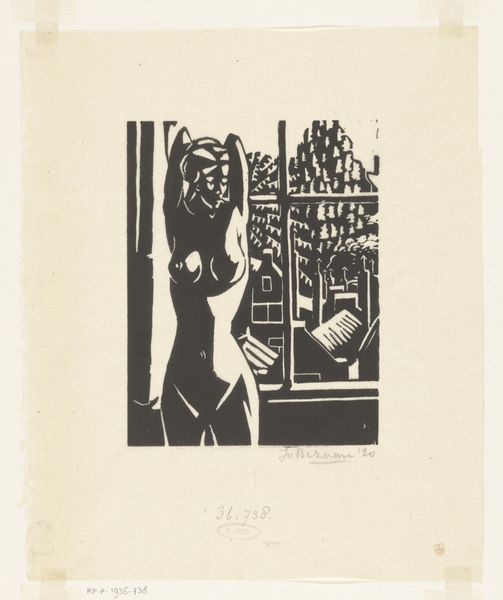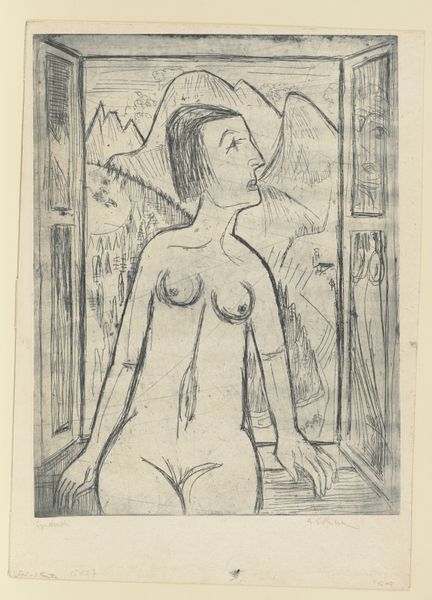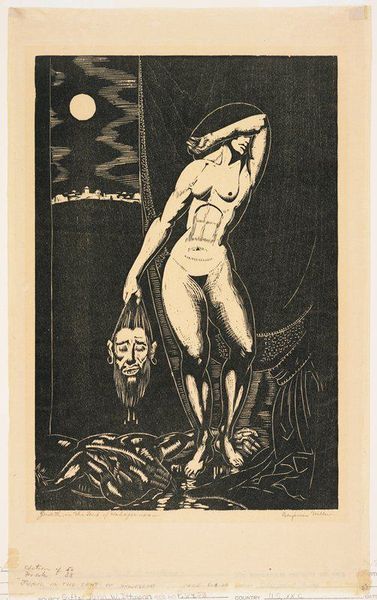
print, woodcut
# print
#
caricature
#
german-expressionism
#
expressionism
#
woodcut
#
nude
Dimensions: image: 15 x 9 cm (5 7/8 x 3 9/16 in.) sheet: 19 x 18 cm (7 1/2 x 7 1/16 in.)
Copyright: National Gallery of Art: CC0 1.0
Curator: This stark and somewhat unsettling woodcut is titled "The Finger Game," created by Ernst Ludwig Kirchner in 1905. It’s quite small, typical for a print, and dominated by this almost aggressive black and white contrast. What's your first impression? Editor: The initial feeling is a mix of vulnerability and defiance. The subject’s pose feels exposed, yet her gaze is averted. This work has the feel of confronting voyeurism while protecting something profoundly personal. Curator: Absolutely, I feel it too. The raw quality of the woodcut, with its deliberate gouges and the unpolished finish, amplifies this sensation. Kirchner uses the wood grain almost as another layer of texture. I’d love to know the nature of that game in the title, too, whether it is a coy interaction or a statement of identity. Editor: Contextually, it’s essential to acknowledge that the early 20th century witnessed emerging dialogues around female sexuality and the gaze. "The Finger Game" challenges conventional representation by embracing rawness. This allows a form of agency otherwise uncharacteristic. The overt expressionism subverts the objectification so prevalent then and now. Curator: Indeed. And if we see the "finger game" as touch itself, isn't that intimacy reclaiming that vulnerability? It’s like saying, ‘this is mine and for me'. It’s not intended for your gaze. It also begs a question of authenticity—the art looks unadorned, yet must it appear 'honest?' Editor: To delve into that sense of honesty further, consider that Expressionism at the time pushed against academic traditions in order to capture psychological realities and emotional truth. In doing so, they are disrupting prevailing conservative norms. As such, Kirchner is implicitly posing radical challenges to patriarchy. It's daring in that respect. Curator: Absolutely daring, yet nuanced. One might perceive shame or defensiveness, yet in a post-#MeToo era it prompts us to examine issues of consent and ownership of bodies. This single image feels loaded with so much quiet provocation. Editor: It remains incredibly resonant now precisely for those loaded tensions and questions. Art of the era that continues to foster dialogues is that with staying power.
Comments
No comments
Be the first to comment and join the conversation on the ultimate creative platform.
